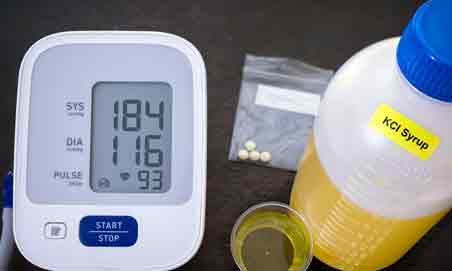Aldosterone is a hormone that is produced in the outer section of the adrenal glands. It just sits above the kidneys and plays a main role in the circulation of blood throughout the body and different parts.
It generally acts on the organs like kidney, which helps in increasing the amount of salt absorbed by the bloodstream. It also helps in increasing the amount of potassium excreted through the urine.
Due to the aldosterone, it also causes the water to be absorbed along with the sodium. It helps in increasing the blood volume, which in turn helps in increasing the blood pressure. To get more information about the effect of the hormone on blood pressure, you can get all the data here.
How is Aldosterone Controlled in The Body?

Aldosterone is a piece of a gathering of connected hormones, which structure the renin-angiotensin-aldosterone system. The initiation of this system happens when there is a decline in blood flow to the kidneys following the loss of blood volume or a drop in blood pressure.
Renin is a compound that prompts a progression of concoction responses bringing about the creation of angiotensin II, which thus invigorates aldosterone discharge.
Aldosterone causes an expansion in salt and water reabsorption into the bloodstream from the kidney in this way expanding the blood volume, reestablishing salt levels, and blood pressure.
How is Blood Pressure Adjust in The Body?
If you want to learn more about the blood pressure and hormone release, then you have to check out the things mentioned below. You can also check out www.benzinga.com/press-releases/20/05/wr16100354/blood-boost-formula-reviews-new-supplement-launched where you can get all the required details.
- Cardiac output can be modified by changing stroke volume or heart rate.
- Resistance to blood flow in the blood vessels is frequently modified by changing the diameter of the vessels. Changes in blood viscosity or in the length of the blood vessels can likewise modify resistance to blood flow.
- The cardiovascular focus gives a fast, neural mechanism for the guideline of blood pressure by managing cardiac output or by altering blood vessel diameter. Situated in the medulla oblongata of the brain stem, it comprises of three unmistakable locales.
- The kidneys give a hormonal mechanism to the guideline of blood pressure by managing blood volume.
- Atrial natriuretic peptide (ANP), a hormone emitted by the atria of the heart, brings down blood pressure by causing vasodilation and by stimulating the kidneys to discharge more water and Na+.
What Happens If Someone Has Too High Or Low Aldosterone?
The most well-known reason for high aldosterone levels is overabundance creation, habitually from a little generous adrenal tumor. The indications incorporate hypertension, low blood levels of potassium, and a strange increment in blood volume.
Low aldosterone levels are found in an uncommon condition called Addison’s infection. In Addison’s ailment, there is a general loss of adrenal capacity bringing about low blood pressure, dormancy, and expansion in potassium levels in the blood.

So, you can get all the details about hormones and their effect on blood pressure when you visit www.benzinga.com/press-releases/20/05/wr16100354/blood-boost-formula-reviews-new-supplement-launched. It will surely help you to get all the answers you are looking for.


